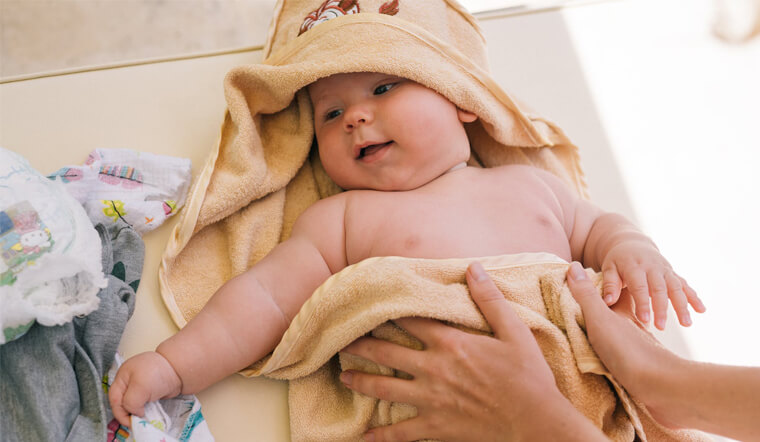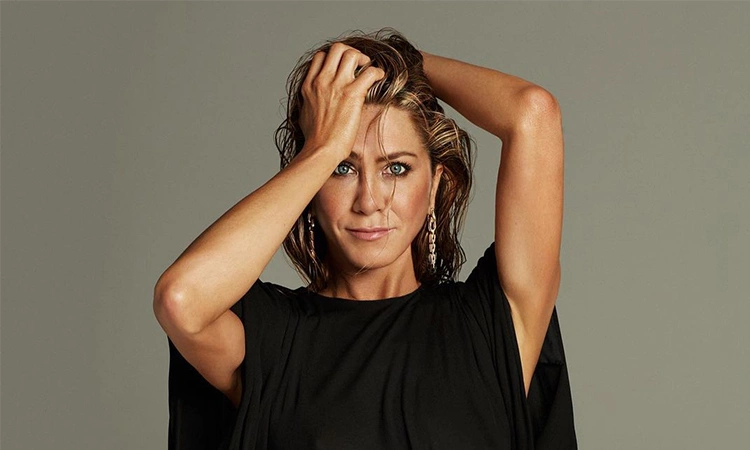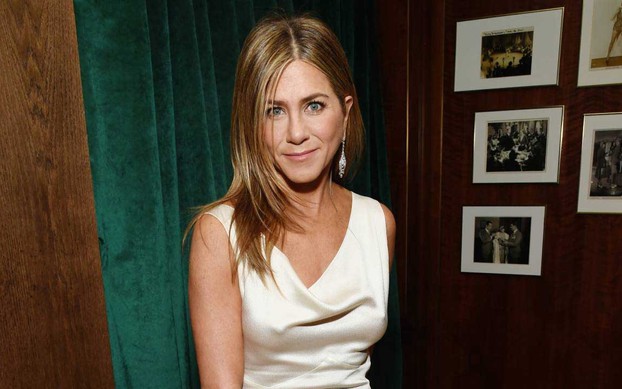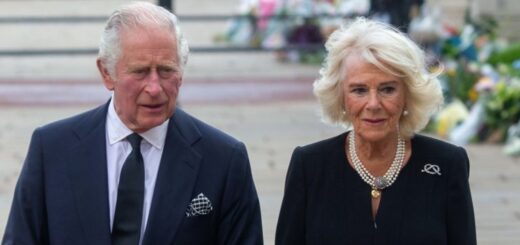Breaking News: Jennifer Aniston Decides to Adopt a Child
When the news broke that Jennifer Aniston had officially adopted a child, the world paused for a moment.
Social media feeds filled with messages of joy, admiration, and disbelief.
Jennifer Aniston — the woman whose face has symbolized resilience, humor, and grace for generations — had chosen motherhood on her own terms.
And in doing so, she sparked a conversation far bigger than her personal story: one about love, agency, womanhood, and the shifting meaning of family in the modern world.
Jennifer Aniston’s life has never truly belonged to her alone.
Since the 1990s, she has lived under a microscope, her every move magnified by tabloids and paparazzi, her private struggles turned into public fascination.
To millions, she will forever be Rachel Green — the charming, slightly chaotic, endlessly relatable character from Friends.
But beyond that role, she became something of a cultural mirror, reflecting society’s evolving, and often contradictory, expectations of women.
She was the “girl next door,” then the glamorous movie star, then the heartbroken ex-wife, and finally, in a quiet and dignified way, the woman who never allowed her narrative to be written by anyone but herself.
For years, the media framed Jennifer Aniston’s life around absence — the marriage that ended, the children she never had, the questions she never asked to answer.
“Poor Jen,” they wrote, projecting pity onto a woman who appeared perfectly content.
In interviews, Aniston pushed back, reminding the world that fulfillment does not have a single template.
“We are complete with or without a mate, with or without a child,” she once said in a 2016 essay for The Huffington Post.
That statement resonated deeply, especially with women tired of being defined by their reproductive choices or relationship status.
Yet, when she chose adoption, she did not contradict that message — she expanded it.
She showed that wholeness and motherhood can coexist, that choosing family is an act of love, not a surrender to expectation.
Adoption, especially by celebrities, has always been both intimate and symbolic.

It is a private decision that inevitably becomes public, carrying with it a host of cultural implications.
For Aniston, adoption is not a performance or a publicity move; it is a continuation of her lifelong pattern of intentionality.
She has built her career, her friendships, and her worldview on authenticity — often rejecting Hollywood’s superficial conventions.
This choice feels aligned with that authenticity.
It’s not the headline of a glamorous reinvention, but the quiet evolution of a woman who has learned to define happiness for herself.
The world’s fascination with celebrity motherhood is deeply gendered.
When male stars adopt or have children late in life, the coverage tends to be celebratory, even indulgent.
They are portrayed as wise, compassionate, finally “settling down.
Questions arise about motives, timing, and readiness.
Aniston, in particular, has carried the weight of those questions longer than most.
Her adoption, therefore, is not simply a personal event; it is a cultural statement.
It tells us that there is no expiration date on motherhood, no single narrative about what a family must look like, and no shame in choosing love — however it arrives.
Adoption also resonates because it’s fundamentally an act of hope.

It’s the belief that family is something you build, not something that must follow biology or convention.
It’s a statement that love transcends bloodlines, and that nurturing a child is about intention, not genetics.
For Aniston, this gesture speaks to both her private heart and her public identity.
She has spent much of her life under intense observation, yet she has never seemed bitter about it.
Her response has always been empathy — for others, and for herself.
That empathy now extends into the deepest form of human generosity: becoming a mother not by chance, but by choice.
Of course, celebrity adoptions invite complex emotions.
Some view them as noble, others as performative.
The reality lies somewhere in between.
Celebrities, with their visibility and influence, have the power to shape narratives around adoption, turning what was once stigmatized into something normalized and celebrated.
But visibility also comes with responsibility.

Jennifer Aniston, who has always guarded her privacy fiercely, seems acutely aware of this.
Her adoption was not announced through a glossy magazine cover or a tearful television segment.
It emerged quietly, confirmed through trusted sources, handled with discretion and dignity.
That discretion sends a message: the story isn’t about image — it’s about life.
Aniston’s decision also speaks to the quiet rebellion that has defined her for years.
She has never allowed Hollywood to dictate her worth.
While other actresses of her generation chased the next blockbuster or the next marriage, she built a slower, more grounded path.
She produced her own projects, championed women’s stories, and learned the art of self-containment in an industry built on exposure.
To adopt a child now, at this stage of her life, is to act from a place of maturity, clarity, and abundance.
It’s not a desperate grasp at motherhood but a calm embrace of it — an act of fulfillment, not correction.
What makes this story so powerful is how it challenges long-standing narratives about women and time.
Society often imposes an invisible clock on female lives — a countdown to marriage, to motherhood, to “completion.
” Jennifer Aniston has spent her entire career dismantling that clock.
Her adoption proves that life’s meaningful chapters don’t adhere to deadlines.

Motherhood can be chosen at forty, fifty, or never at all — and each choice can be equally whole.
By adopting now, she redefines not only her own story but the broader cultural understanding of when and how a woman can choose family.
There’s also something deeply human in the timing of this moment.
Over the past few years, the world has witnessed a quiet shift in the collective consciousness — a movement toward introspection, compassion, and redefining success.
Amid global uncertainty, many have rediscovered the importance of connection, empathy, and care.
In this context, Aniston’s adoption feels emblematic.
It mirrors a broader yearning for meaning beyond career or fame — a return to what truly matters.
It’s as if she is saying, without words, “This is what life is for.”
But the story also invites reflection on the child — a person who, through this act, gains not only a home but a future shaped by profound love and protection.
In a world where so many children wait in uncertainty, adoption is a lifeline.
When a figure of Jennifer Aniston’s stature embraces that lifeline, it brings awareness and visibility to a cause often overshadowed by celebrity gossip.
Every headline, every article, every social media post about her adoption subtly reinforces the idea that every child deserves love, safety, and belonging.
That is the quiet power of fame when used well.
Still, beyond the headlines, one can imagine the simple, unglamorous beauty of this new chapter: Jennifer Aniston, sitting in a sunlit corner of her Los Angeles home, holding her child, laughing softly — not as “America’s sweetheart,” not as a Hollywood star, but as a woman who finally arrived where her heart always wanted to go.
There’s poetry in that image.
The actress who once played the restless young woman searching for herself has, at last, found peace not in fame, but in family.
This adoption also reflects a broader cultural evolution in how society perceives family.
The 21st century has seen the rise of diverse family models: single parents by choice, same-sex couples, blended families, and adopted families.
Jennifer Aniston’s decision sits squarely within this modern redefinition.
It affirms that love is the only essential ingredient in building a home.
Her story reminds us that what makes a family isn’t the order of events — marriage, then children, then stability — but the authenticity and care that bind people together.

From a feminist perspective, Aniston’s choice embodies autonomy.
She has always been a symbol of independence — financially, emotionally, and spiritually.
By adopting, she exercises that autonomy in perhaps the most intimate way possible.
It is a declaration that she alone decides the shape of her life.
In a culture that still measures women’s worth through outdated milestones, that declaration is revolutionary.
She has turned a narrative once defined by pity into one defined by power.
The public’s response reveals much about our collective longing for stories of redemption and love.
People are not simply celebrating Jennifer Aniston’s adoption; they are celebrating what it represents — resilience, hope, and the idea that it’s never too late to choose happiness.
Her decision touches something universal: the human desire to give and receive love without condition.
For all the glamour attached to her name, the emotional core of this story is profoundly ordinary, even sacred — a woman opening her heart to a child, promising to care, protect, and nurture.
It’s the oldest, simplest, and most beautiful story in the world.
There’s also an ethical layer to consider.
Celebrity children often grow up in a paradox: protected yet exposed, adored yet scrutinized.
Aniston, having lived through the worst of media intrusion, understands this paradox better than most.
Her approach so far suggests she intends to protect her child from the spotlight, allowing them a life defined by normalcy, not notoriety.
In that sense, she’s not only embracing motherhood but redefining what responsible celebrity parenting looks like in an age of oversharing.
Over time, the significance of this moment will likely extend far beyond Aniston herself.

Her adoption may encourage other women to consider paths to motherhood that defy convention.
It may inspire discussions about adoption reform, child welfare, and family inclusivity.
It may help erode the lingering stigma that still surrounds non-biological parenthood.
In this way, Jennifer Aniston’s private joy becomes a public catalyst — a reminder that personal choices, when made with integrity, can reshape cultural attitudes.
It is tempting, of course, to romanticize this story — to imagine Aniston’s life now as effortlessly serene, her dreams fulfilled.
But adoption, like all forms of parenthood, is complex.
It involves adjustment, patience, and the willingness to grow alongside another human being.
It demands humility and resilience.
Knowing what we do about Aniston’s character — her empathy, her steadiness, her capacity for reflection — it’s easy to believe she will meet those demands with grace.
Perhaps that’s why this story resonates so deeply: it feels real.
It’s not about perfection, but about possibility.
In the end, Jennifer Aniston’s adoption is not a Hollywood fairytale; it’s something better — a human story.
It’s about a woman who has lived through scrutiny, heartbreak, and reinvention, finally choosing love in its purest form.
It’s about rewriting scripts, not for movies, but for life itself.
It’s about reminding the world that motherhood is not a social expectation but a personal calling, one that arrives when the heart is ready.
For decades, she has entertained us, inspired us, and taught us, in subtle ways, about resilience.
Now, by becoming a mother, she teaches us something even more profound: that family is not defined by circumstance but by intention.
That there are no rules for when or how love finds us.
That it’s never too late to begin again.
And perhaps, somewhere tonight, as the noise of the outside world fades, Jennifer Aniston is holding her child close — whispering words of comfort, feeling the quiet heartbeat of new life against her own.
No cameras, no headlines, no roles to play.
Just a mother and a child, beginning a story that belongs only to them.


